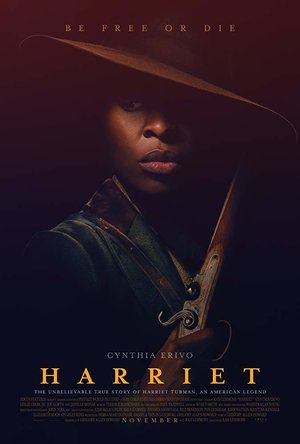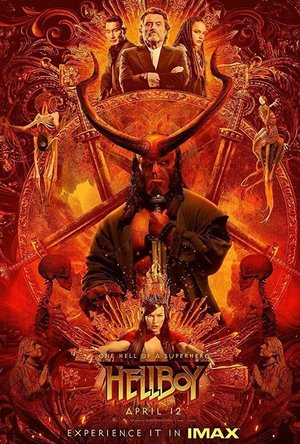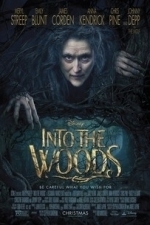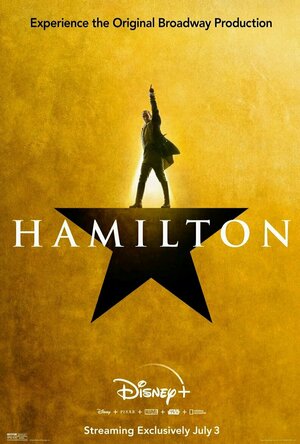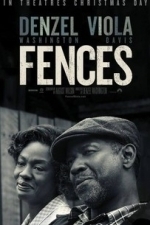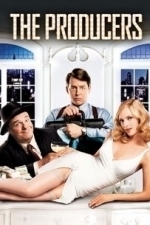Gareth von Kallenbach (980 KP) rated Harriet (2019) in Movies
Nov 7, 2019
The story begins after church services where Minty’s husband John Tubman who was a free slave asks the plantation owner to allow Minty to be freed so their children would be born free instead of slaves. The slave owner, Henry Broadess (Mike Marunde played with a gleeful abundance of entitlement) denies the request. This is the spark where Araminta decides to run away to live as a free person.
Minty was known for her “spells” since the accident, where she was hit in the forehead by a thrown weight. The film interprets seizures as her conversation with God. The film uses these spells as her talks with and messages received from God. That is how Harriett’s visions are explained. That she has an ability to know where to go and what to from what she sees when she has an episode.
Harriet had saved herself from slavery. She made it to the State of Pennsylvania where she would be free. After a year or so, Harriet decided that she would not be able to rest comfortably as a “free slave” without her husband and her family. That is when she decided that she would go get her loved ones.
As we know from history, she saved her family and many others through the Underground Railroad. All her rescues were successful, totaling 70 that she brought to freedom. The Civil War began a few years later. We are shown Harriet, working with the Union Army to save the lives of about 700 slaves.
The film celebrates Harriet Tubman and provides a beautiful biographical film of this amazing woman. Cynthia Erivo should get a nomination or two come award season. Pssst, she already has a Tony from her performance of The Color Purple on Broadway and a Grammy. She is already halfway to an EGOT. The cast of the film is fantastic. Leslie Odom Jr. as William Still, the man who kept the records of each emancipated slave and provided new identities to help them. Then there is Janelle Monae, as Mary Buchanon, born a free woman. She was among the group that helped Harriet make a new life in Philadelphia.
The film tells a brave tale, but it glosses over the dark history of slavery. Yes, it is one of the dark chapters in humanity. The atrocities committed in the name of self-preservation are despicable. The creators of the movie could have provided a more realistic representation of a picture of slavery.
This film is very good. Ms. Erivo performs effortlessly as Harriet. The supporting cast are very good. Harriet Tubman was a hell of a woman back in the day. I liked the movie. I also would have liked to have slavery shown in stark reality, not coated in idealism.
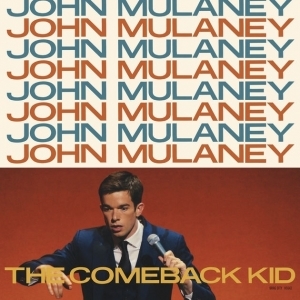
The Comeback Kid by John Mulaney
Album
John Mulaney is an American comedian, writer, and actor best known for his standup specials and work...

The Man Who Walked Through Walls
Marcel Ayme, Sophie Lewis and Yann Kebbi
Book
A collection of funny and fantastical short stories, Marcel Ayme's The Man Who Walked through Walls...
BankofMarquis (1832 KP) rated Hellboy (2019) in Movies
Apr 14, 2019
I would imagine that about 90% of my readership just got what they needed out of my review with that first line and have moved on. For the rest of you, I will now explain why this reboot of HELLBOY is now the "leader in the clubhouse" for worst picture of 2019.
I was pleasantly surprised by the 2004 Guillermo del Toro helmed and written HELLBOY and was even more surprised by how good the del Toro written and helmed HELLBOY II: THE GOLD ARMY (2008) was. I think that this was because there was a driving force - and vision - from a true auteur and was a perfect combination of material and artistic staff - including Ron Perlman in the title role.
This version of HELLBOY has none of that. No vision, no driving force and a "B" performance by David Harbour in the title role. It feels like what it is - a cash grab. I blame the studio who produced this film - Summit Entertainment - for "going on the cheap" on this one.
First off, they tapped a "B Movie" Director, Neil Marshall to Direct this thing. He is known for such artistic successes as DOOMSDAY and THE DESCENT - horror flicks that were heavy on gore, short on characters and plot - and that is what he brought to this film. Why worry about characters, plot or any kind of engaging features (including Special FX) when you can show, yet again, a body getting torn apart and blood spurting all over the screen.
The studio also skimped on the performers. Instead of Perlman, Selma Blair, John Hurt and Doug Jones you get David Harbour, Daniel Dae Kim, Mila Jovovich and a sleep-walking, just give me my paycheck, Ian McShane. It's like watching the "road company" of a Broadway show. While the actors are game (with the notable exception of McShane), they are "B picture" actors, much like the Director.
And...much like the special FX. I knew, going in, that the early word on this film was not good, but that never stops me. I like to make up my own mind, so I thought I'd "pony up" for the IMAX experience to, at least, see the CGI and FX on as large a screen with as good a sound system as possible. I shouldn't have bothered, for the CGI and FX were mediocre (at best) and all the big screen and sound did was emphasize how low quality the CGI was.
And...finally...the pacing of this film is problematic, at best. This is certainly a film that was written and edited within an inch of it's life for the "short attention span" audience of today. The prevailing theory was "why linger on a plot or a character or a moment when we can quick cut to another body getting pulled in two and watch a plume of blood spurt out in a giant arc)."
There are 2 scenes in the end credits to set up the next film(s) in this series. Films that I seriously doubt will be made. If they are, I hope they pump some more money into the budget and get a creative team with some artistic vision.
A swing and a miss.
Letter Grade: C (and I'm being generous)
4 stars (out of 10) and you can take that to the Bank(ofMarquis)
Gareth von Kallenbach (980 KP) rated Into the Woods (2014) in Movies
Aug 6, 2019
At the center of the story is The Baker (James Corden) and The Baker’s Wife (Emily Blunt) who are desperate to break the curse, which keeps them from having a child. The Witch (Meryl Streep) who placed the curse weaves a devious web, entangling all of the characters in a tumultuous adventure.
Streep is terrifying and highly entertaining to watch in her role. Her vocal and facial expressions exude a character of pure evil.
Other characters incorporated into the story include Little Red Riding Hood (Lilla Crawford), Cinderella (Anna Kendrick), and Rapunzel (Mackenzie Mauzy), just to name a few.
Disney toned down several aspects of the original plot, which would not have been appropriate for children. However, the story still maintains a racy mix of seriousness and humor. Each scene highlights the absurdities of fairy tales only noticed by adults.
One scene which will have adults rolling with laughter is the sudden duet between Cinderella’s Prince (Chris Pine) and his brother, Rapunzel’s Prince (Billy Magnusson). They sing about the challenges of literally chasing the ladies of their desire and their refusal to acknowledge any possibility of rejection.
Certain scenes test the limits of appropriateness and are almost perverse, or perhaps even err on the side horror.
One example of this is the role of The Wolf (Johnny Depp). As he stalks Little Red Riding Hood through the forest he sings about how she is fresh, supple, and young. Through the lyrics and the choice to use a human in the role, rather than a CGI wolf, a strange glimmer of pedophilia surfaces. This is taken a step further when The Wolf reveals a jacket full of candy in his attempt to lure the child.
The element of horror enters the film in a scene where Cinderella’s Stepmother cuts the feet of the ugly stepsisters to try and force them into the glass slipper offered by the Prince. This is not graphically shown. However, it is implied as she waves around a knife and sings about it.
Despite a few of these adult twists, the film should be fun for the whole family to watch. Just keep in mind that, like the original tales, some short scenes may be a bit horrifying for young children.
As is tradition with fairy tales, the good comes with the bad. The moral messages of each fairy tale are combined into one larger message: One should be careful what they wish for, because in the grander scheme of life the ramifications of those wishes may be unforeseen.
It is also a visually stunning piece of work. Nothing comes off as overdone or cheesy. The tales truly come to life and transport viewers into a land of fantasy.
The majority of the film is very exciting and fast moving. That being said, the film is lengthy with a runtime of 124 minutes. Unfortunately, the last 30 minutes begins to drag on and feel tiring. This would have been an easy fix if perhaps the last few songs had been shortened, or the last thirty minutes was cut completely.
All in all, the film is a truly magical cinematic experience. I give “Into the Woods” 4 out of 5 stars.
BankofMarquis (1832 KP) rated Hamilton (2020) in Movies
Jul 5, 2020
I could go on and on about the Pulitzer-Prize winning show, the script, the music, the performances and/or the cross-cultural casting - all of which works to perfection, but what separates this film from the other hit Broadway shows that are converted to film is how well that the filmmakers were able to translate the power of being inside the theater during a live performance of this show.
Credit, of course, needs to go to the visionaries responsible for this show, creator/writer/star Lin-Manuel Miranda and Director Thomas Kail. They realized pretty early on (when the show was becoming the phenomenon that it has become) that they wanted to preserve this event for future generations, so started making plans to film the show - in High Def - with an audience and without an audience (for close-ups). In June 2016, about a month before the original cast started leaving the show (and right after the show won 11 Tony Awards), they spent $10 million to capture the show - with live audiences on Sunday and Tuesday and then spent the rest of Sunday night and all day Monday doing close-ups and crane shots to augment the action.
The results are outstanding. The wide-shots show the breadth of the production - showing the strong, Tony Award winning choreography by Andy Blankenbuehler, the unique, minimal and highly versatile set, the Tony Award winning costumes by Paul Tazewell and the Lighting Design that earned Howell Blinkley a Tony. All of these are showcased in this film - special note should be made about the Lighting that needed to be tweaked on the spot for the filming.
As for the close-ups, they showcase the wry smile and comedic delight that Tony winner Daveed Diggs shows in his roles as Lafayette/Jefferson, the power and sorrow of Tony Award winner Renee Elise Goldsberry - her spotlight number SATISFIED is as "perfect" a musical number as you will ever see. The powerful acting of Leslie Odom, Jr. as Aaron Burr (who won the Tony as Best Actor over Lin-Manuel's performance as Hamilton) as well as terrific supporting turns by the likes of Anthony Ramos (Lawrence/Phillip), Chris Jackson (showing real leadership as George Washington) and Okieriete Onaodwoan as Hercules Mulligan (one of my absolute favorite characters in this show)./James Madison.
Special note should be made to Jonathan Groff's portrayal of King George III - it is, basically, a cameo role, but he is filmed with such tight close-ups (showing spittle rolling down has chin as he sings) that marvelously juxtaposes King George's real emotions with that of the words he is speaking.
But, of course, the real star is Lin-Manuel Miranda - the genius creative force behind Hamilton. Interestingly enough, I thought his performance was the weakest of the lead cast (don't get me wrong, he was still excellent - just not "as excellent" as some of the others). His true vision, of course, was to tell the story of "the people of that era" as told by "the people of our era".
That is the true genius of Hamilton.
Letter Grade: A+
10 stars out of 10 (can I turn this up to 11)?

WalkJogRun GPS Running Routes
Health & Fitness and Travel
App
The only GPS running app accurate enough to offer reliable pace coaching helping you cross the...

Calm Radio - Online streaming with relaxing music
Music and Entertainment
App
CalmRadio comes loaded with: 1 -Over 240 subscription channels** (no commercials) 2 -Over 190 free...
Bob Mann (459 KP) rated Fences (2016) in Movies
Sep 29, 2021
This is a film primarily about resistance to change. All those changes in the outside world are on the ‘other side of the fence’ that Troy habitually tries to finish but never seems to put his mind to. Fences keep things out; but they also keep things in, and Troy is in a cocoon of his own making. He justifies his actions as a ‘family provider’ with lengthy speeches but ultimately they deliver hollow words and assertions that don’t stand up to scrutiny.
This is a pressure cooker of family life that is primed to blow, and a revelation (which I didn’t see coming) sets that fuse alight.
This is a film worth watching for the acting performances of Denzel Washington and (particularly) Viola Davis, winner of the Best Supporting Actress BAFTA and a strong contender for the Oscar. Both give assured performances, although Troy is such an instantly dis-likable and pitiable character that I could feel my emotions influencing my judgement about his performance.
But this is also a strong ensemble cast, with Mykelti Williamson (famously appearing as Bubba of the ‘Bubba Gump Shrimp Factory’ fame) being effective as Troy’s disabled brother and English-born Jovan Adepo being particularly impressive in an extremely assured feature debut.
However, the Broadway roots of the piece are highly visible with 98% of the film set either in the back yard, in the house, or on the front steps (the set could clearly rotate!). For such a claustrophobic topic, this is perhaps apt. But as a feature film I longed for the action to go elsewhere. The film version of the story – with a few tweaks to the screenplay – has lots of opportunities for this, but these are never taken. This makes the whole piece feel ‘worthy but dull’. In particular, anyone looking for a useful tutorial on fence building needs to look elsewhere!
As for the recent “Moonlight” there is also excessive use of the “N” word and other outdated racial references that have the potential to offend.
Good luck to Viola Davis and Denzel Washington (who also directed this) for their Best Supporting Actress and Best Actor Oscars nominations. But “Best Film” Oscar? No, I don’t think so. In truth this is a film that I will struggle to remember or get excited about in a month’s time and it will not be on my re-watch list.
Fred (860 KP) rated The Producers (2005) in Movies
May 27, 2019
Some of my favorite jokes from the original are just awful in this film. For example, in the original, Max says, "Well, you know what they say; smile & the world smiles with you." He then turns & looks into the camera & says, "This man should be in a straight-jacket." Crossing the 4th wall works so well. Yet, in this film, Lane says the line to a statue. During the out-takes on the DVD, we see Lane deliver the line to the camera, ala Mostel. But he stops, realizing that he's not supposed to do it the same way as Zero, but the new, lamer version. The Hitler tryouts are also ruined in comparison to the original. In the original, the man singing "Have You Ever Heard the German Band", points to the piano player & orders, "You Vill Play It!" Hilarious. In this one the same character turns & say, "Play the song, please." or something weak like that. And finally, when the man (who has become a mentally challenged man for this film) goes to sing "The Little Wooden Boy", he goes into a stupid little dance, & when he is just about to start, the director yells, "Next!" Nowhere near as funny as the original, where we see a man so sure of himself & so confident get ready to sing & then is cut off with the much funnier, "Thank you!" More problems arise with the changing of the story from the original. The main change is the omission of LSD (Dick Shawn's character). I heard they removed him as a hippie wouldn't work today. So, instead of just making him something other than a hippie, let's get rid of him & throw the character of Franz in there. Doesn't work. Then, when the play is finally put on, the director, a very homosexual Roger DeBris, comes out & sings, creating an obviously gay Hitler. And the audience then loves the show. How weak. There are other changes too, none of them good.
Now, let's get to the good points of this film. Some of the original songs are pretty good. Broderick redeems his bad acting for some good singing & dancing. Even Will Ferrel does a pretty good job. I can't say the same for Uma Thurman though, as her song is annoying & screechy! There are some funny parts in the movie, & they are all new to the story as all the original jokes fall flat (even without comparison). But there are not enough of the funny parts to save this film.
I can see how some may like the Broadway aspect of this film & I myself might have if the film itself didn't stink on the whole. So, I'll stick to the original film, this film had no reason to be made & now that I have seen it, it had no reason to be watched either.
